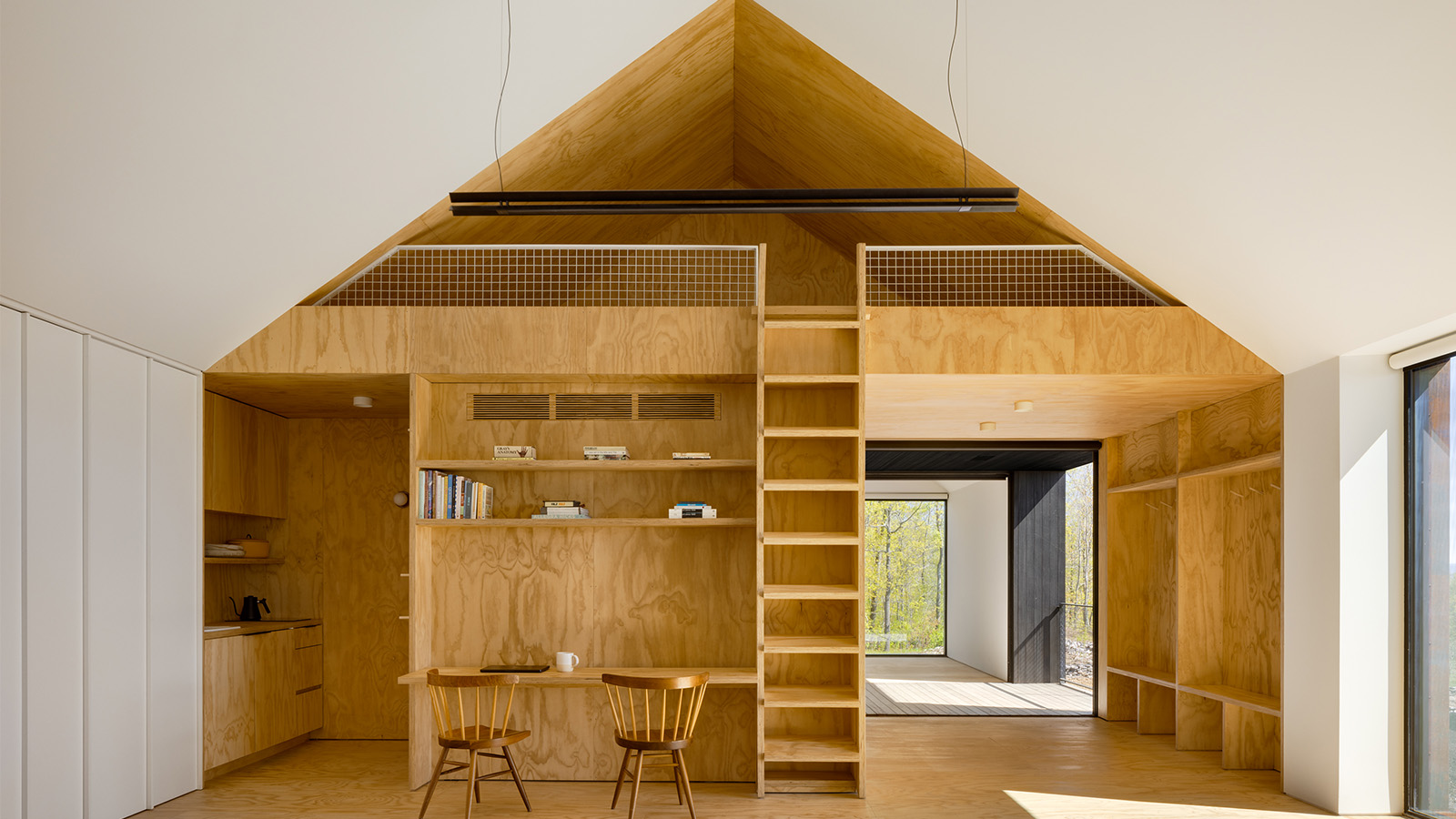
Seeing the low, monolithic volumes of Ridge House from a distance, you’d be forgiven for thinking that they are part of a piece of monumental land art. Seamless, pared down and uniform-looking, the two structures that form this rural holiday escape, set in the green expanses of upstate New York, are the work of Brooklyn-based architecture duo Max Worrell and Jejon Yeung (featured in 2024’s Wallpaper* USA 400 guide to creative America). Their references and cues for the design, unsurprisingly perhaps, were just as much in the client’s brief and sensibilities, as in the art world.
‘He was very sensitive to the landscape,’ says Worrell. ‘We agreed we wanted something that is an abstraction of the ridge, very subservient to the geology and landscape, but at the same time very grounded and spatially layered and complex.’ The duo cite sculptors Richard Long, Andy Goldsworthy and Michael Heizer among their key influences.
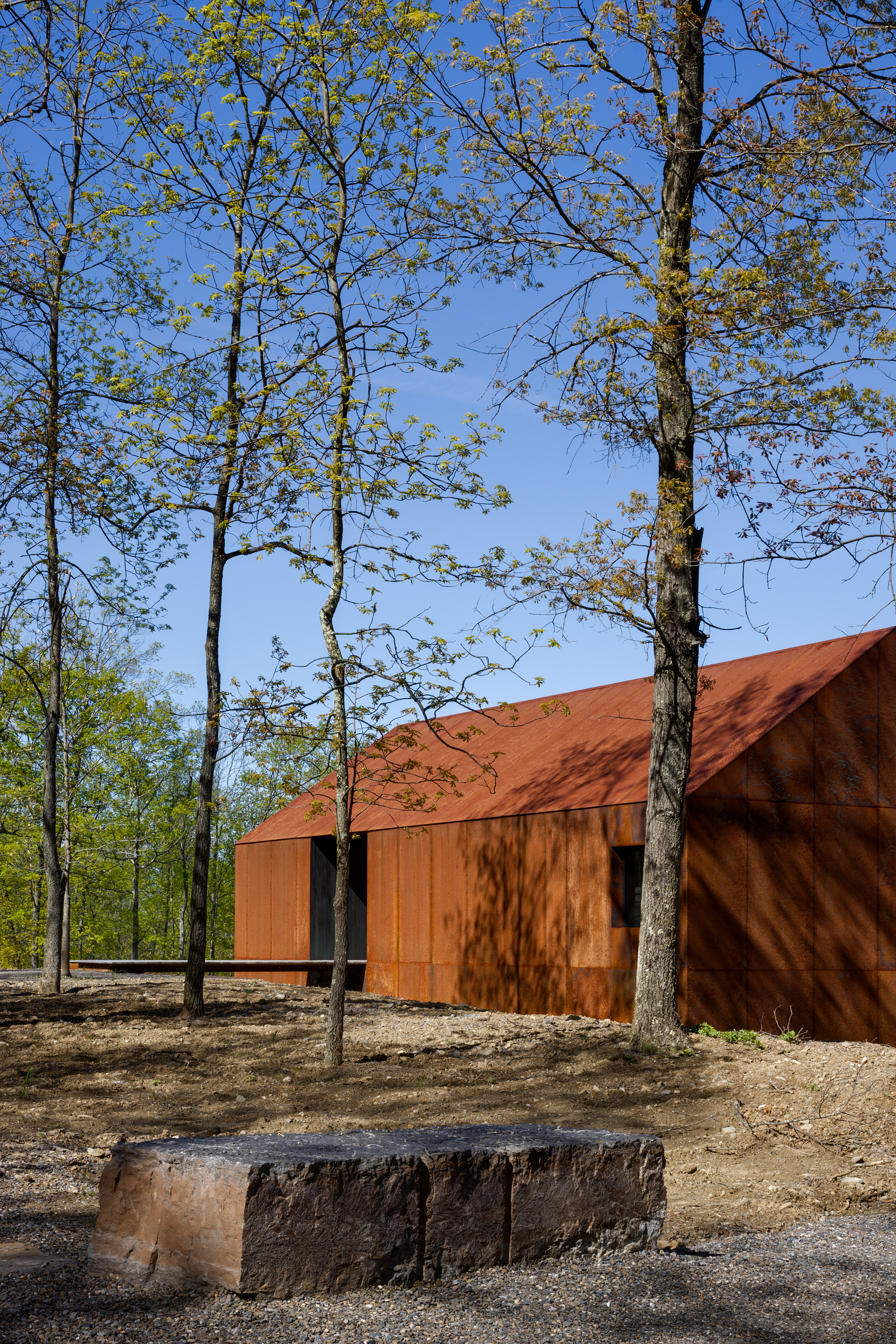
Step inside Ridge House, Worrell Yeung's upstate retreat
The client’s initial contact with the practice was via a cold email in 2020, stating he was a fellow Brooklyn resident who admired their style and wanted to meet to discuss a proposed retreat on his 88-acre piece of land. The project soon kicked off and, some pandemic delays notwithstanding, was completed last year.
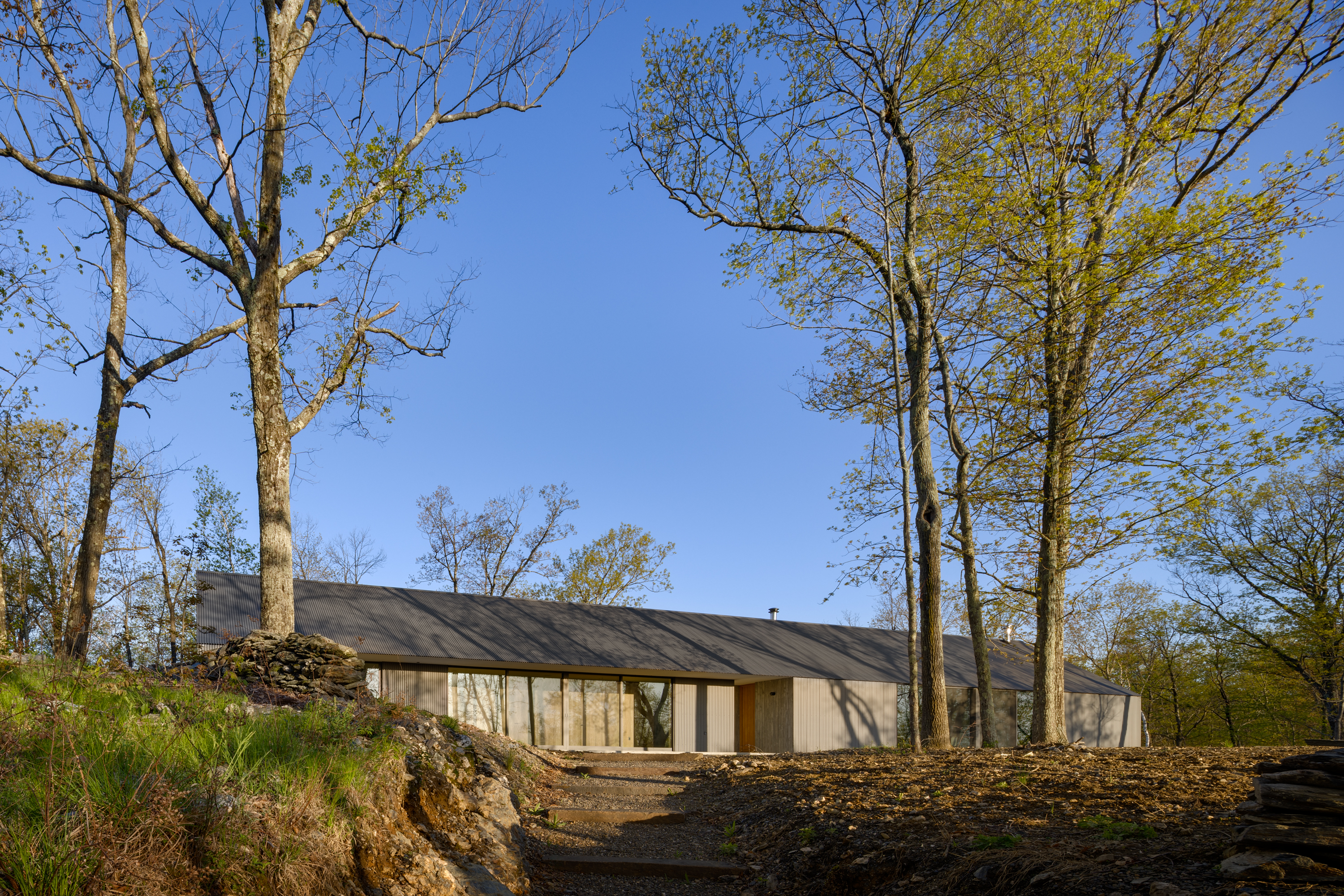
The client had made it clear from the start that he wanted a family of smaller structures, instead of a single, large home. The resulting retreat consists of two new-build volumes – a guest house ‘barn’ and the main house – and a third structure, an open-air swimming pool deck, located closer to the barn. The placement of all three was guided by the plot’s undulating terrain and the views it offered. The wooded site, rich in white and red oak and hickory, was to be preserved as much as possible, and the team trod carefully when it came to placing their builds so as to avoid cutting down the existing mature trees.
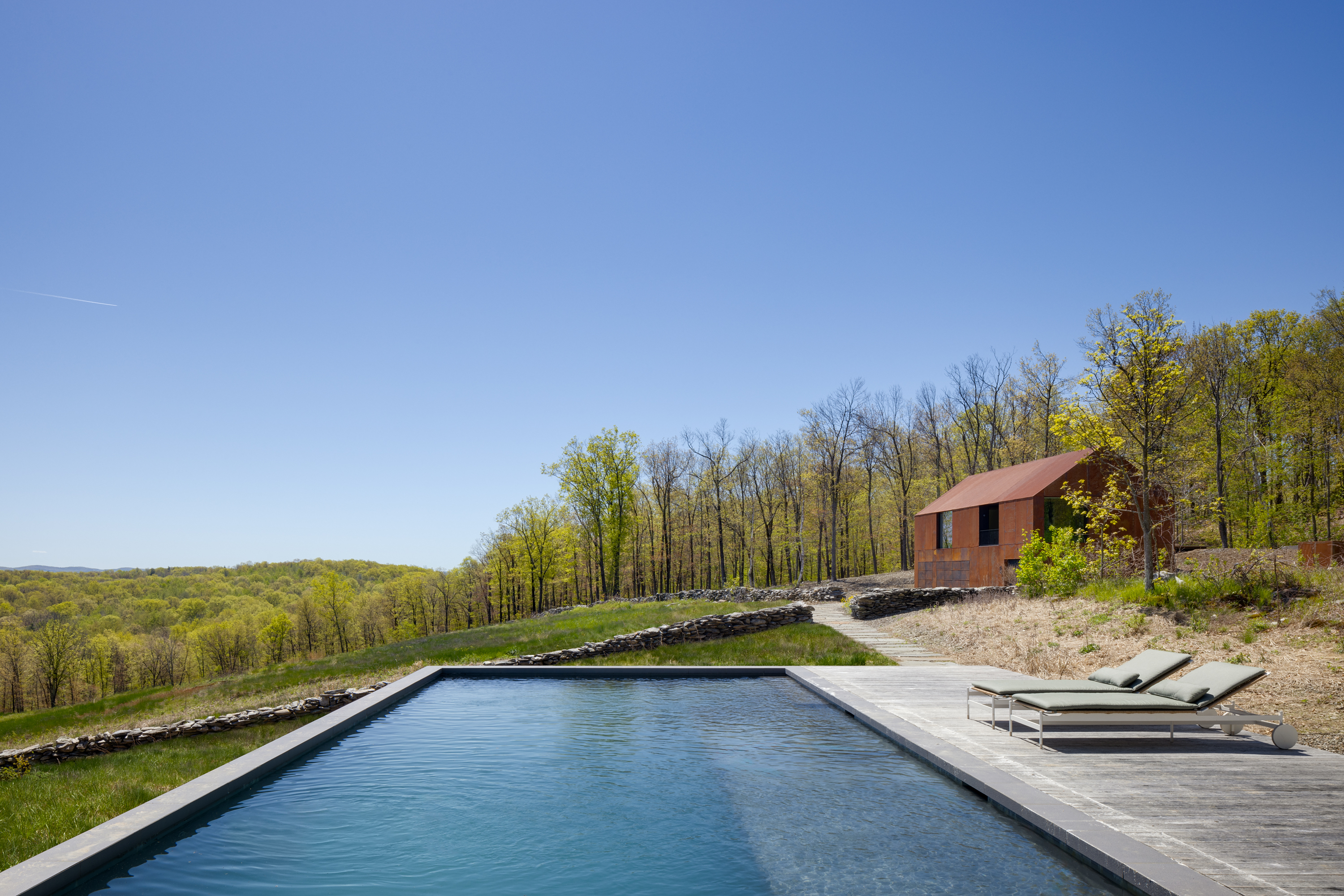
‘The property is special in that it has this strong connection to both the Taconic mountain range to the east and the Catskills to the west,’ says Yeung. ‘When you drive up the long circuitous route in, you come to the barn and that’s your first little bitof respite from the winding drive. It sets the stage for looking further east. And then the main house is at the top of the ridge. That one is about this western exposure to both mountain ranges and views, nestled into this wooded landscape.’
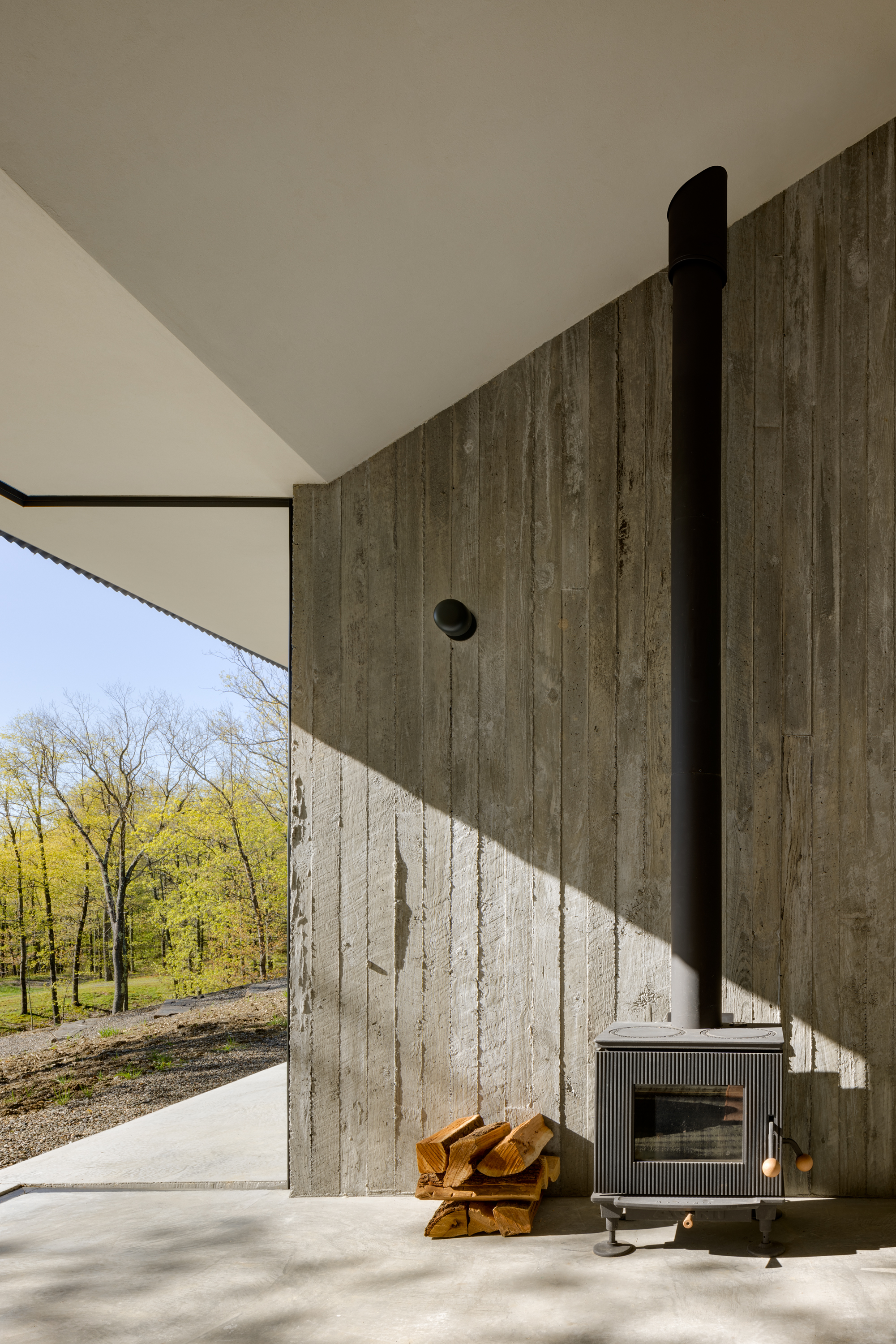
The barn, containing the guest suite, is smaller and clad in Corten steel, appearing as a single-storey structure on one side, the sloped topography concealing its second floor. The main residence is clad in corrugated zinc with board-formed concrete at the ends and at the entry in the centre. All materials were chosen to mix well with their surroundings and weather with time, taking on a textured patina.
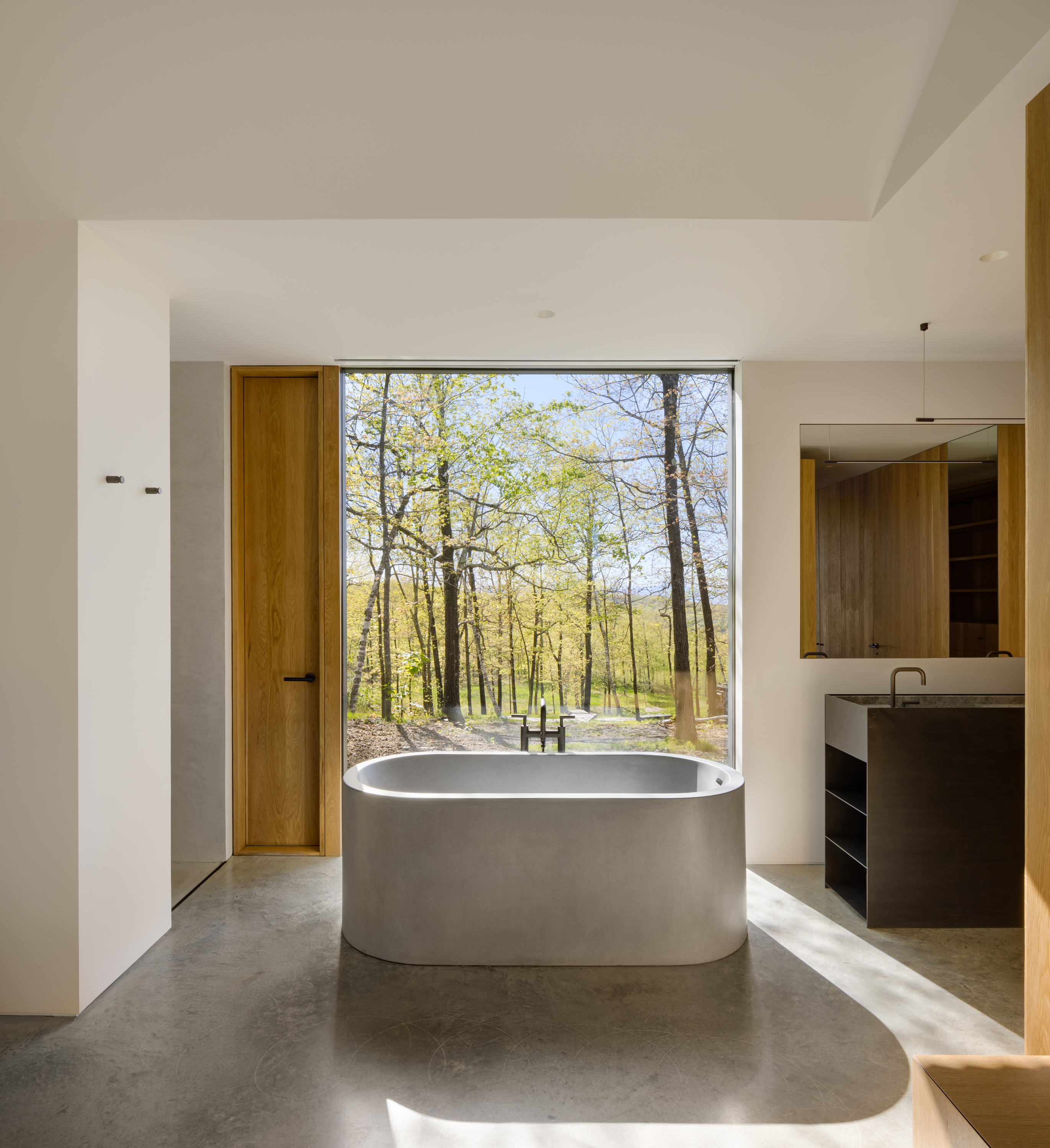
A network of stone walls criss-cross the property. ‘They become these thresholds that you cross at different moments,’ says project architect Beatriz de Uña Bóveda. ‘That experience of understanding the historical nature of the property was important to us, so [when choosing the building materials], for example, using a different type of stone did not feel right.’ Additionally, Worrell Yeung worked with landscape architect Understory to create a pathway carved into the hillside that unites the barn and the main house. This path is informed by land art, specifically Heizer’s Double Negative in the Nevada desert.
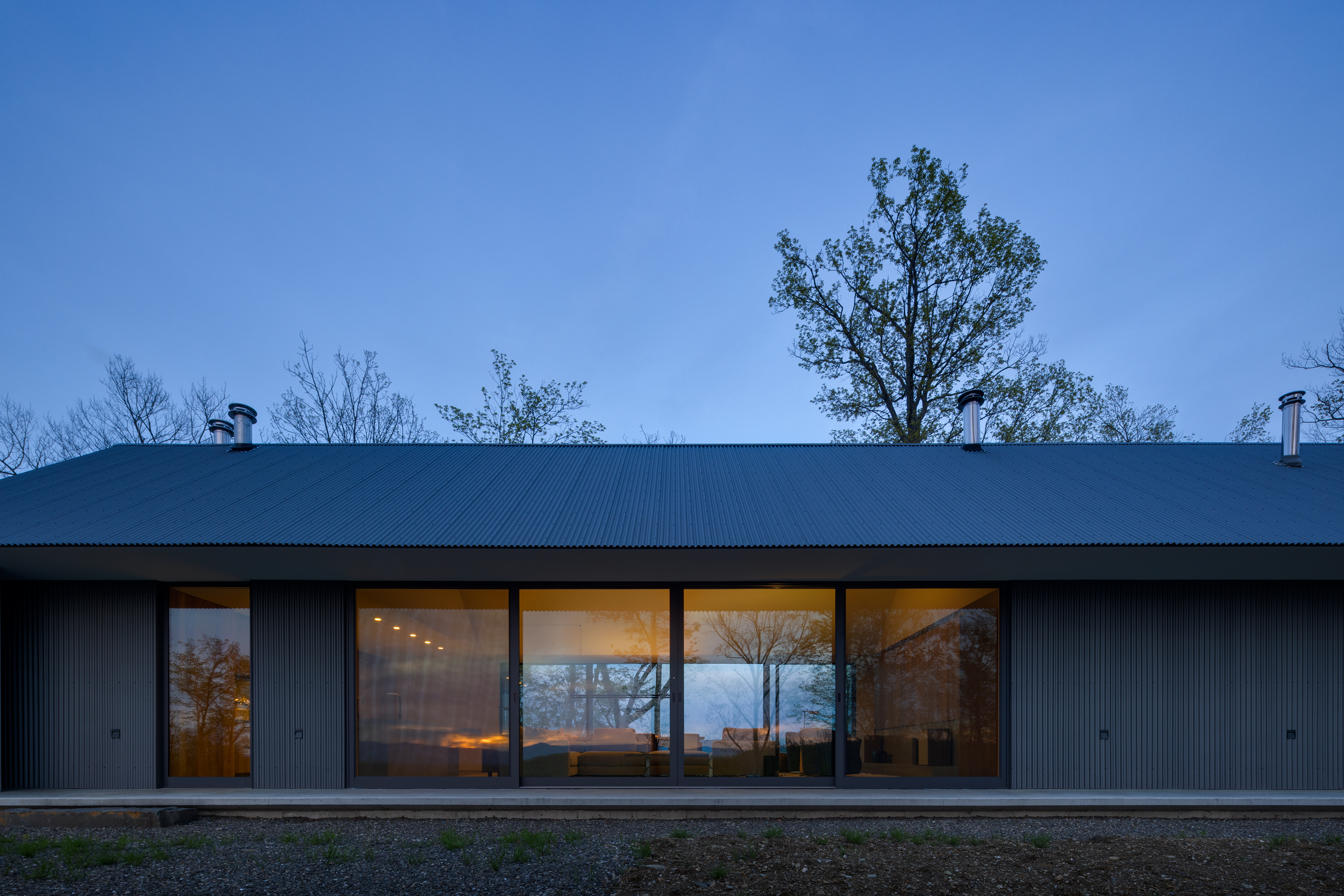
Both the main and guest house are entered through a breezeway, dramatically cut through their seemingly solid volumes. This gesture makes for a hard-to-miss entrance that nods to geometric abstraction, but also frames particular views of the mountains. It emphasises further the simple nature of each building’s outline. Inside, concrete, white oak and marble accents make for a minimalist colour and material palette.
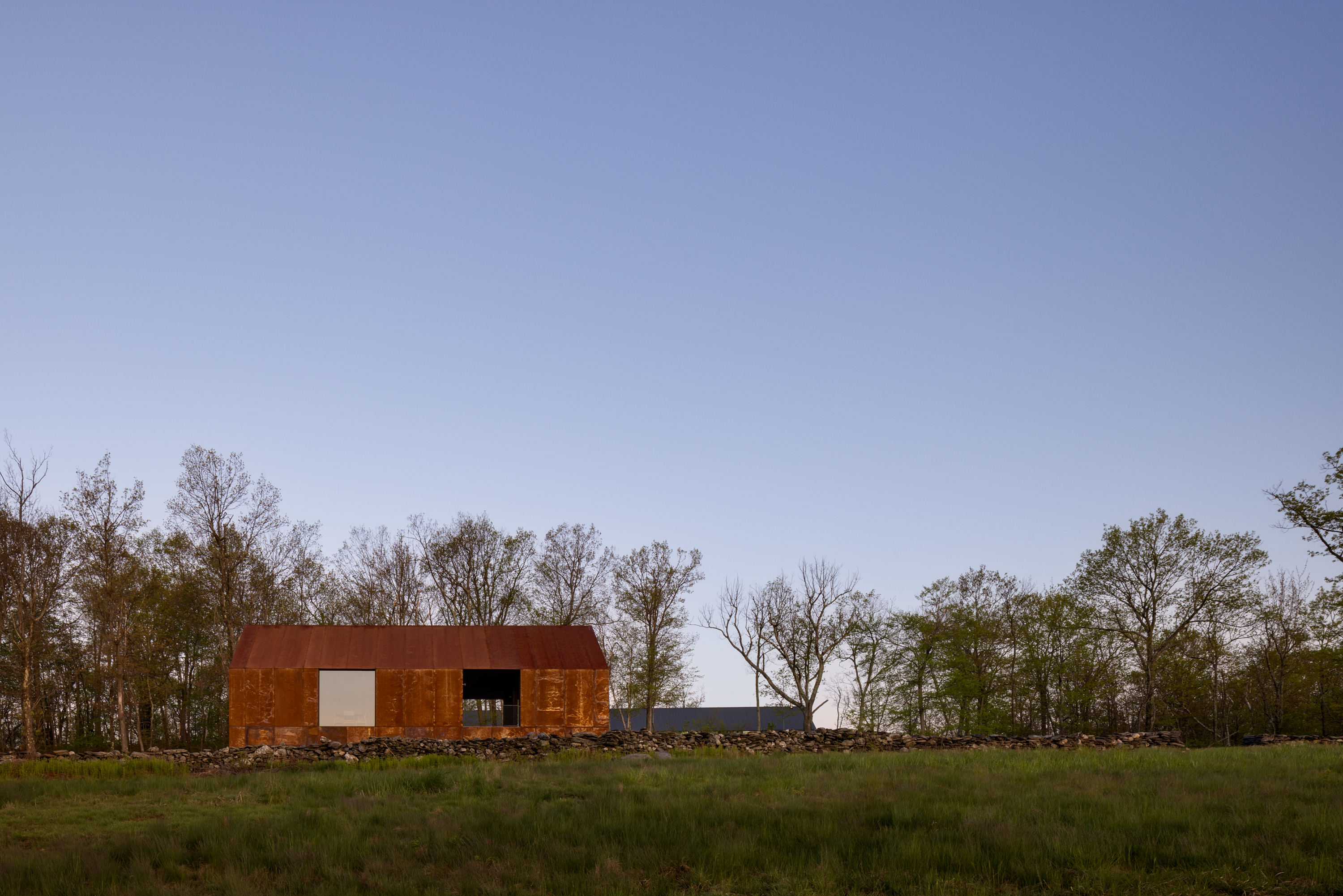
The main home’s layout is arranged along the north/south axis, with public areas at one end and private spaces at the other. There are moments of compression and expansion, conceal and reveal, making for a journey that is full of wonder and surprises. The architects created some bespoke pieces, too – such as the kitchen island, which they wanted to feel ‘like it emerges from the concrete floor’. The dining table, coffee table and pendant were custom designed in collaboration with New York studio Colony, which was responsible for the interiors, furniture and fixtures.
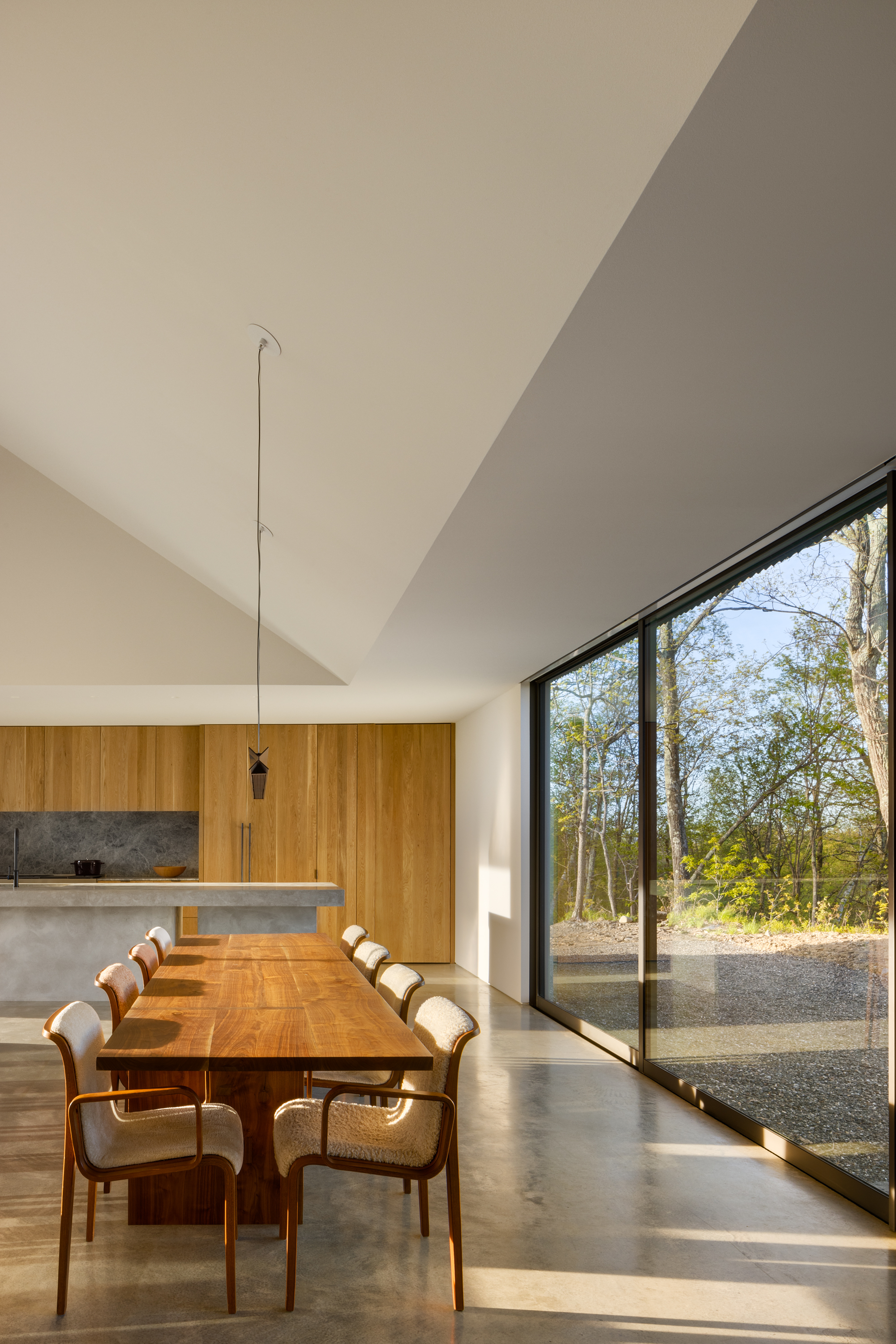
Ridge House is a well-balanced and finely tuned holiday retreat, rich in ideas and a site-specific approach, born from a carefully calculated process and an organic collaboration with an engaged client. Not that there weren’t any (pleasant) surprises along the way. ‘The main house has a covered screened-in porch,’ says Worrell.
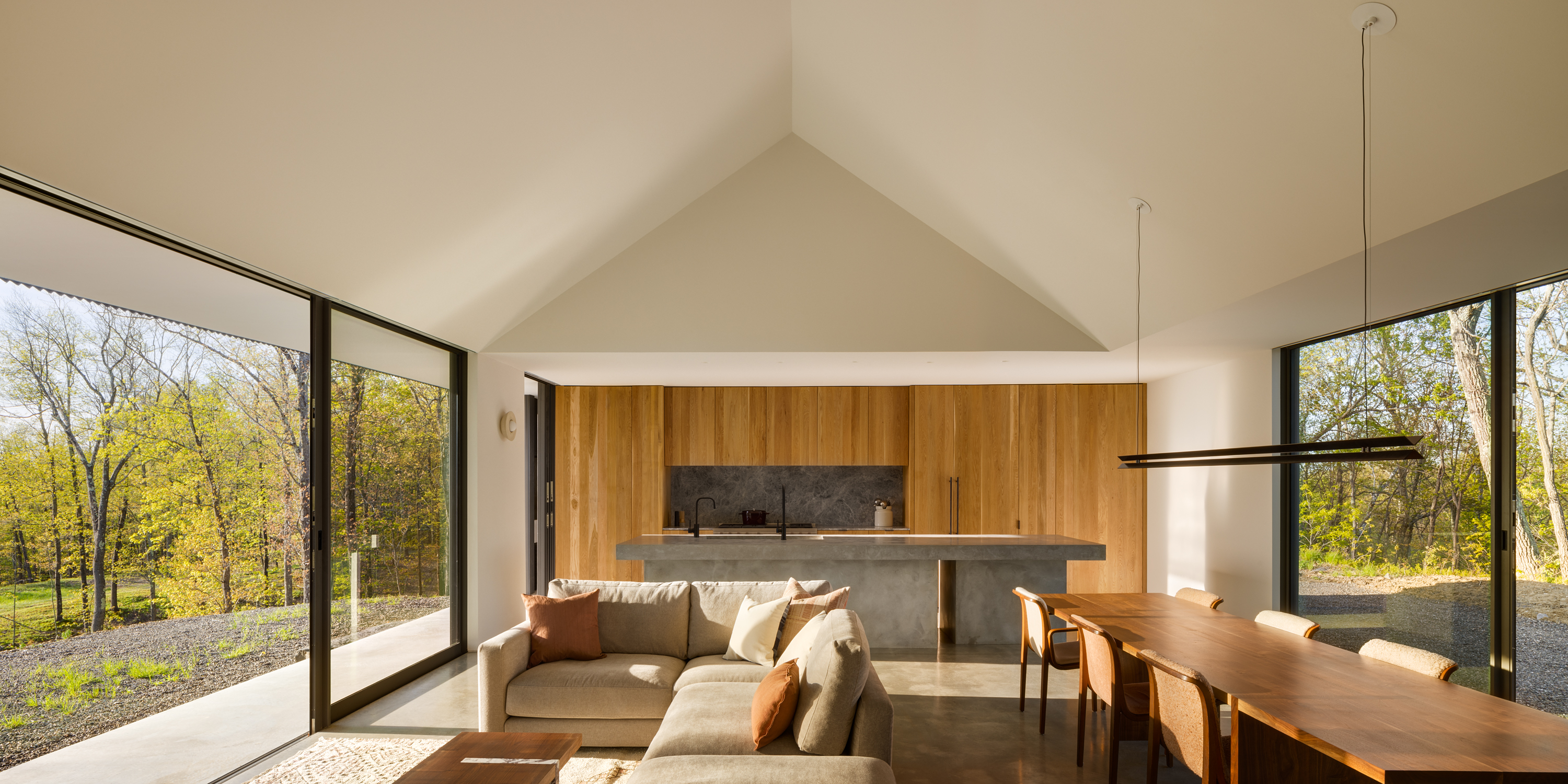
‘The client really wanted one, but we were sceptical – mainly about solving [the design] for the required function, but also the nature of typical porches feeling “tacked on”. We saw it as a challenge, and it has now become this amazing in-between space separating public and private programmes of the house. We were wary, but it’s become our favourite spot.’
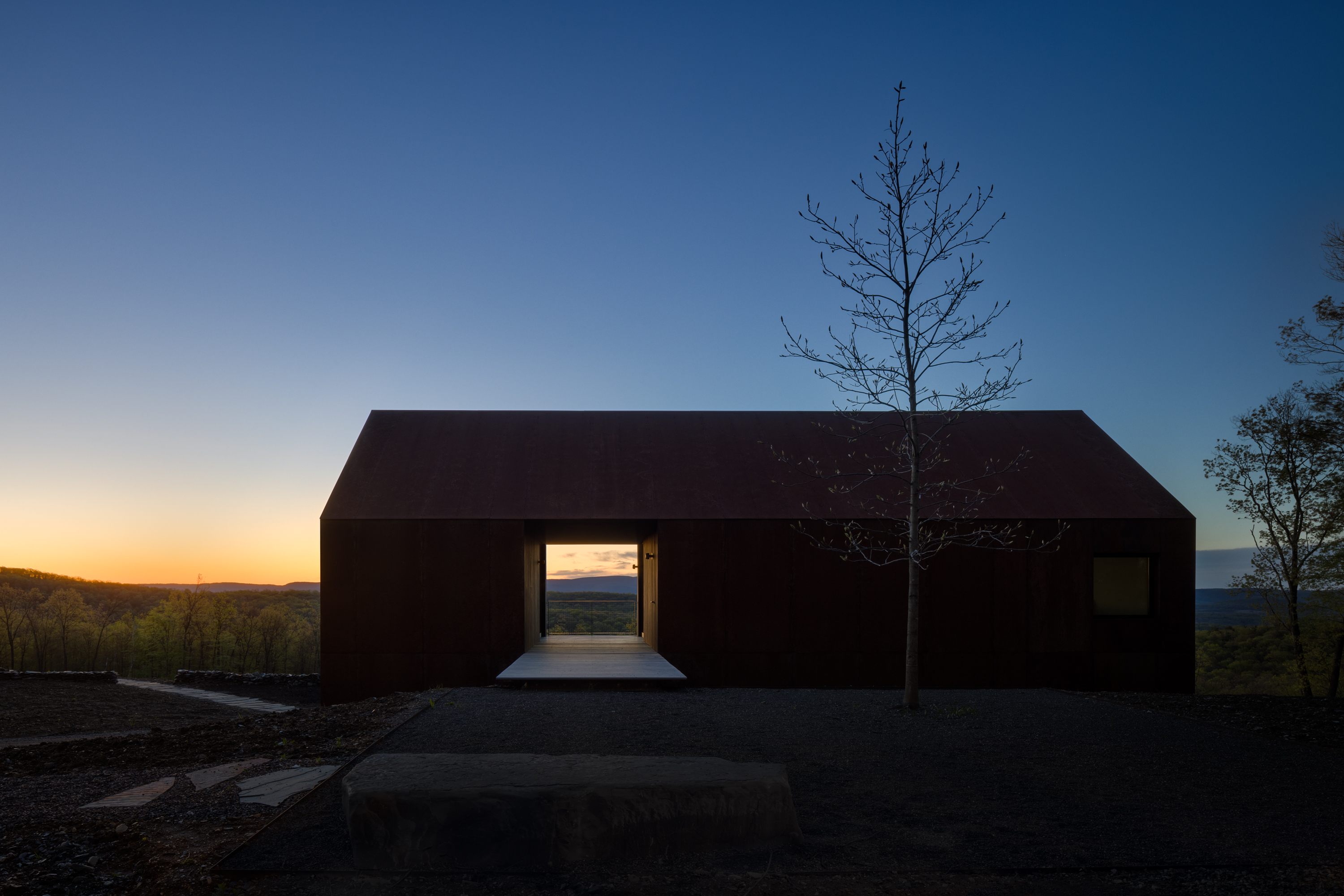
This article appears in the August 2024 issue of Wallpaper*, available to download free when you sign up to our daily newsletter, in print on newsstands from 4 July, on the Wallpaper* app on Apple iOS, and to subscribers of Apple News +. Subscribe to Wallpaper* today







